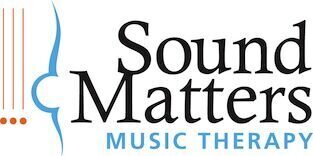Some time ago, I had a short conversation with an art therapist that proved to be one of the most important exchanges I’ve had with someone else, in terms of my musical and personal/professional development. We spoke for maybe 15 minutes, but I continue to remember fondly and excitedly our discussion. Having never met her before, and never again seeing her, our meeting was and remains uncomfortably enlightening.
We spoke about Suzuki. She asked what led me to music therapy, and I briefly described my musical history and the fact that performance wasn’t, for me, all that music could be. (In the future, I may describe here what music really is to me.) In providing my musical background, I included the all-important fact that I began playing violin at the age of two (nearly three, though I don’t remember it at all), and that I was instructed in the Suzuki Method. I saw the art therapist’s expression change, almost sour, and she said, “I played Suzuki violin, too.” She went on to relate to me her experience in uncanny likeness to my own. She started when she was three or four, played all the way through high school, and then promptly gave it up. My story is a little different in that I played into college, stopped for a few years, but then did again play violin when I started my music therapy coursework. What was exceptionally bizarre about our conversation was that she told me that she has never attempted to play another instrument because she gets alarmingly frustrated with her inability to simply know how to play it shortly after coming into contact with it. She told me she doesn’t know how to learn to play it, and gives it up quickly. She pursued another kind of art.
Clearly she does know how to learn. She got herself through an undergraduate and master’s level education, and was at that time an art therapist. She knows how to integrate knowledge and put together abstract concepts. And I, too, know how to learn. But what I found so striking was that she was iterating to me my frustrations, I just didn’t know at that time to what to attribute them.
In my life, Suzuki remains a very powerful character. My Suzuki instruction itself, my teacher, and my mother shaped my life before I was able to contribute. Suzuki did much to facilitate my ability to perform and be a public speaker, and it provided for me poise, even when I was a toddler at a recital and didn’t know why I was standing before an audience. I owe a great deal to my Suzuki education, but unfortunately it has dealt me some frustration as well.
Like the art therapist with whom I spoke, I become supremely agitated with myself when I cannot play an instrument the way I can play the violin. As a music therapy intern, I need to be competent and functional at both guitar and piano. I am not competent at either, though I’m trying to believe I am functional at them. My point is that because I started violin at such a young age, I don’t remember the learning process. I don’t remember teaching my body the mechanics behind shaping my hand to finger certain melodies in a given position. I don’t remember the physical discomfort of that type of learning, but more importantly, I don’t remember how long it takes to learn a given task. So now when I approach a new song or a new instrument, or a new skill of non-musical sorts (to a certain extent), I cannot remember how to learn it.
Now I need to teach myself patience with this, I’m supposing. I need to teach myself how to learn, gracefully.
